Artist Thuy Ai performs a rice pounding song at a Bai Choi festival in Quang Tri province - Photo: NVCC
Song from labor
Ho is the voice of the poor farmer, the confession of the sunny and windy land of Central Vietnam, the crystallization of labor and soul.
According to Ms. Nguyen Thi Nuong, Acting Head of the Cultural Management Department, Department of Culture, Sports and Tourism of Quang Tri province, Quang Tri rice pounding singing is closely associated with the work of pounding rice, a daily activity of the villagers in the past. Each rice pounding session is often an occasion for collective gathering, where the boys and girls in the village work together and... sing. Hands rhythmically holding the pestle, mouths humming the song, the work, though hard, becomes light and joyful.
Similarly, Le Thuy folk songs also originate from working activities, but they are working on rivers and fields. During boating sessions across Kien Giang River, or during rice planting and harvesting days, the folk songs resound, leisurely and passionately. The name “khoan” also originates from the call “khoan khoan ho khoan”, which is both a rhythm command and a prelude to a dialogue that is about to begin.
Both melodies originate from labor, clearly reflecting the closeness and simplicity of the people of Central Vietnam with nature and with their arduous life. But it is in that labor that the chants become a flame that ignites humanity and hope.
A prominent feature of rice pounding and drilling songs is the form of response, one person sings a "troi" (opening line), the other person immediately responds with another line. In that response, there is humor, charm, wit and sometimes sweet confessions, hidden behind the shyness of the country people. " I sing on this side of the mountain, you listen to the river on the other side, the mountain is high, do you know, the river also fills my heart" (Quang Tri Rice Pounding Song) .
“ Wait a minute, wait a minute, I ask you honestly, whose field has good rice, or is it your field that is neglected?” (Le Thuy folk song).
Both begin with a question or a call, followed by a gentle, witty or profound response, expressing cleverness, intelligence and even affection in male-female communication. Ho is a language to convey feelings, a place to express intelligence and sophistication in behavior. Ho is a special "communication channel" of the countryside people, both profound and funny, lyrical and subtle. In that ho, love is not sentimental or painful but always bright, hopeful, sincere, discreet but profound.
Simple and profound voice
Artist Thuy Ai, Quang Tri Province Cultural and Cinema Center, who has been associated with the two folk songs for many years, commented: “What makes people remember forever is the simplicity and naturalness in each verse. The melody is not forced, sometimes calm like a whisper, sometimes high-pitched like a joyful song in the middle of the harvest season.”
Without embellishment or elaborate metaphors, the images in the folk songs are as familiar as the lives of the villagers: rice fields, roofs, boats, ferry docks, banyan trees, communal house yards... These images not only exist in the lyrics but are also collective memories, the cultural space of many generations of Vietnamese people who have grown up together. The special thing is that the folk songs do not use abstract images but are close and familiar such as: thatched roofs, wells, communal house yards, the countryside river, the banyan tree at the village entrance... These images are not only the background but also cultural symbols, the foundation for the folk songs to add soul and meaning.
Try listening to the "hidden satire" of Le Thuy's call-and-response song:
Nam: Le Thuy has Kien Giang water,/ Has gentle and passionate folk songs,/ Country girls are both virtuous and graceful,/ If you marry me, my mother will surely like you right away!
Female: My hometown is full of love, / Who is sincere, I invite to visit!
The cleverness, humor, and richness of the country people do not lie in theory but in the folk songs, both joking and full of hidden meaning, both innocent and profound.
Similarly, the Quang Tri rice pounding song with lyrics composed by Ms. Thuy Ai performs:
Female: Where is the specialty of our hometown with lots of shrimp and fish? / What is the famous dish of Con Co?
Drink alcohol without hesitation or thinking/ If a man can do it and say it/ If a man can say it/ Then I will follow and please follow.
Nam: Cua Viet, Cua Tung is a place with lots of shrimp and fish/ Famous far and wide for its delicious and fragrant Stone Crab - Con Co Island/ Trieu Hai, Gio An, I have been to many places/ Kim Long - Que wine with Hai Que/ Kim Long - Hai Que wine, so I will bring you with me!
Village stage, where art is nurtured
Before being recognized as intangible cultural heritage, the rice pounding and drilling songs were the real “village theaters”. No need for backdrops, lights or a fancy stage, just a moonlit night, a communal house yard, people gathered to sing and respond.
There, there is no boundary between artists and audiences, everyone is a singer, a listener, a community telling each other stories about the village, the countryside, and people.
Meritorious artist Nguyen Thi Ly (middle) and artists from the Le Thuy Ho Khoan Club, Quang Binh province are performing - Photo: MT
Meritorious artist Nguyen Thi Ly (70 years old) in Phong Thuy commune, Le Thuy district, Quang Binh province, excitedly said: “Le Thuy folk songs are a precious heritage passed down from our ancestors. Once you are addicted to them, you cannot stop. Once you sing them, you sing them passionately. Whenever you hear folk songs, performances, or festivals, you feel excited. I have been addicted to folk songs since I was a child. Now that I am 70, I am still addicted, and I am afraid I am even more addicted than when I was young. And it is not just me, everyone who is addicted to folk songs is the same.”
That simplicity is its special charm. Ho is not ostentatious or flashy, but carries a noble mission of passing on morality, lifestyle and love of homeland to future generations.
Amidst the modern pace of life, when digital music permeates spiritual life, the rice pounding songs of Quang Tri and the Le Thuy, Quang Binh folk songs still quietly resonate, like a loving reminder of the homeland, the roots, the countryside and the values that never get old.
Minh Tuan
Source: https://baoquangtri.vn/chung-dieu-ho-tinh-que-194303.htm


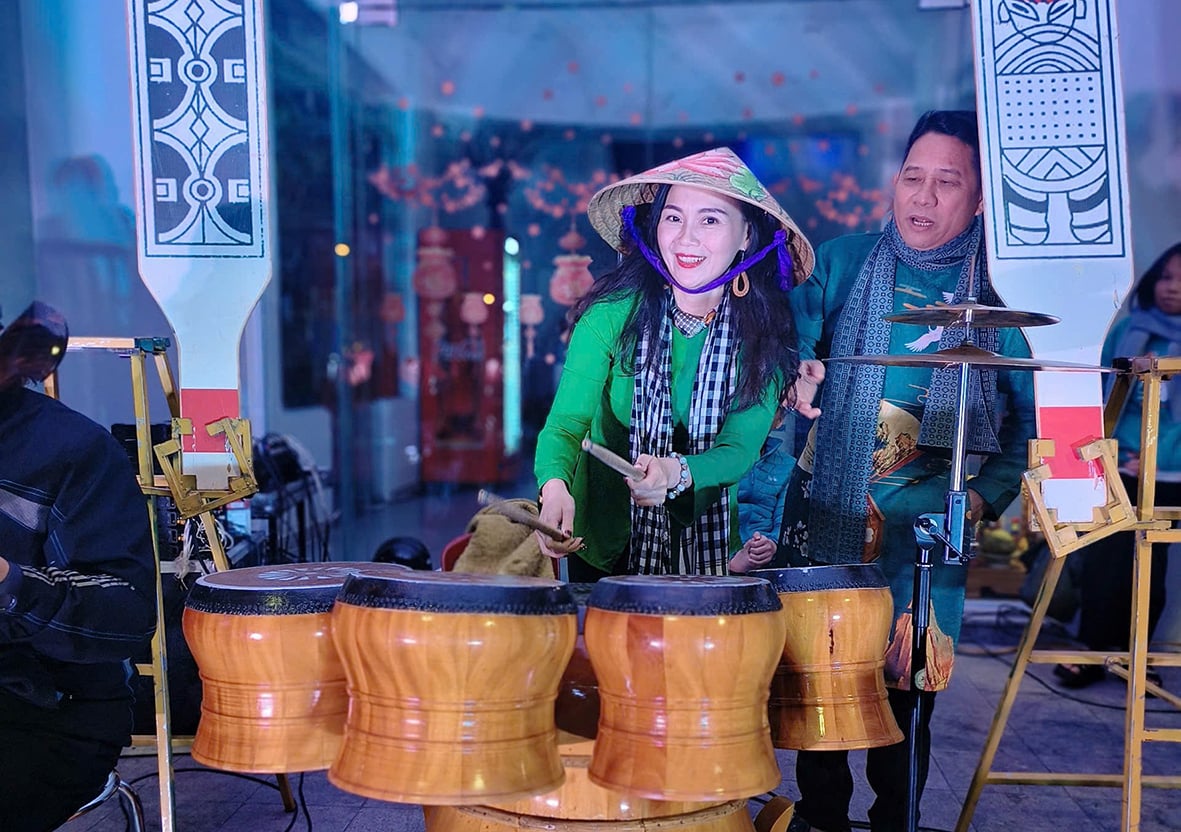
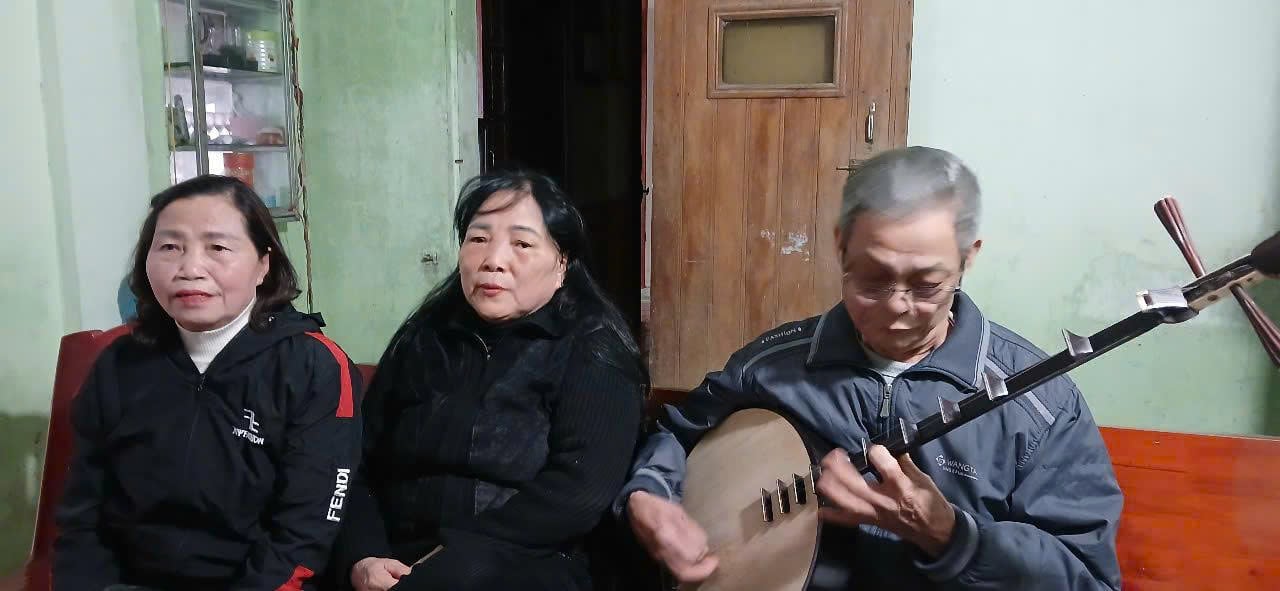














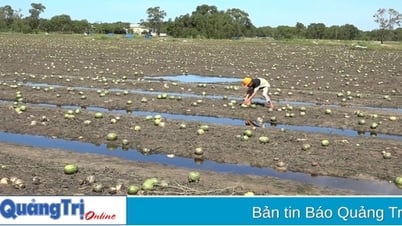























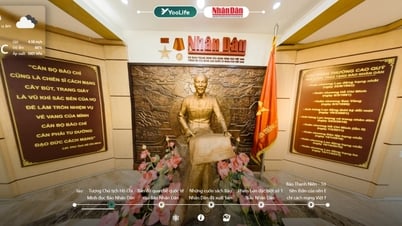




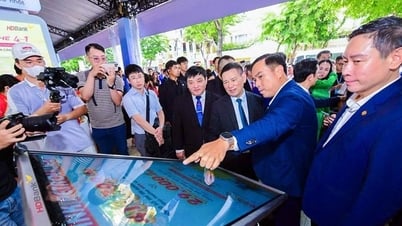


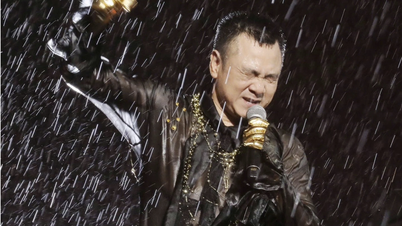
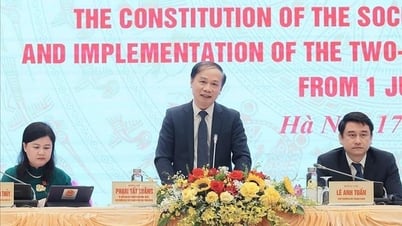








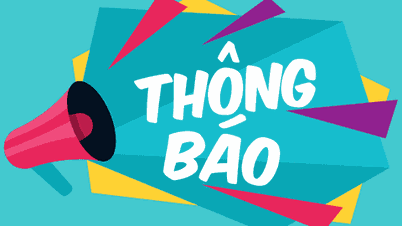

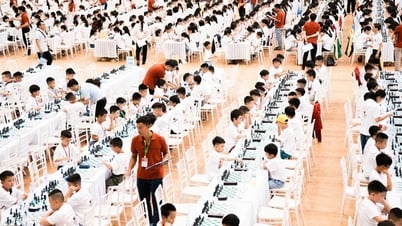
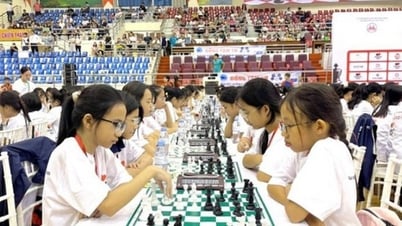

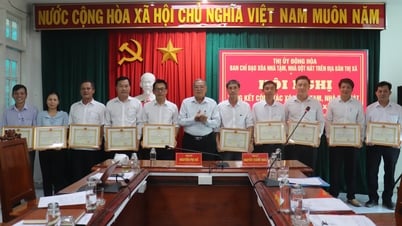


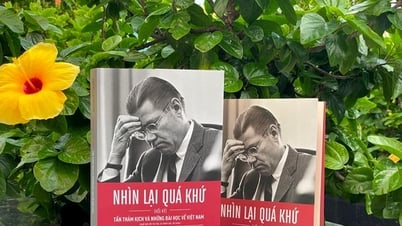




















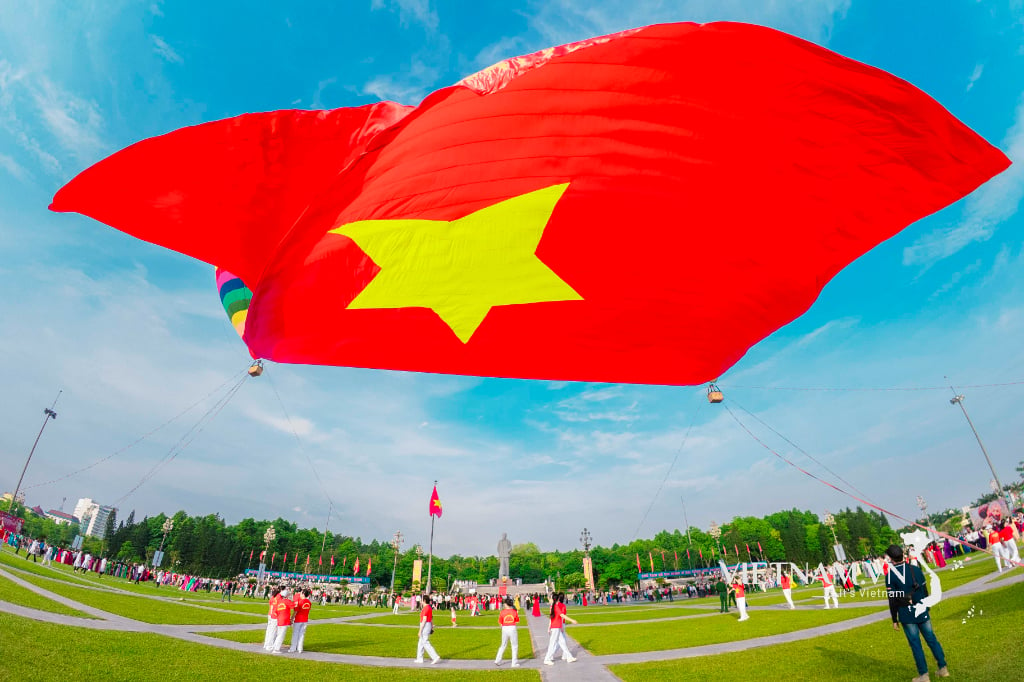

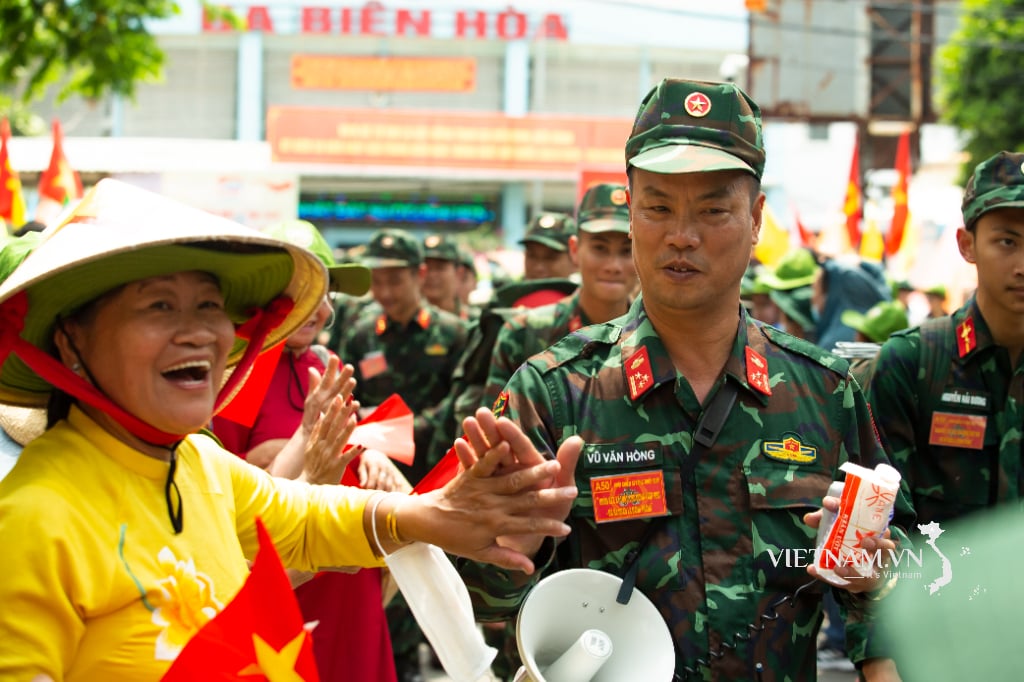
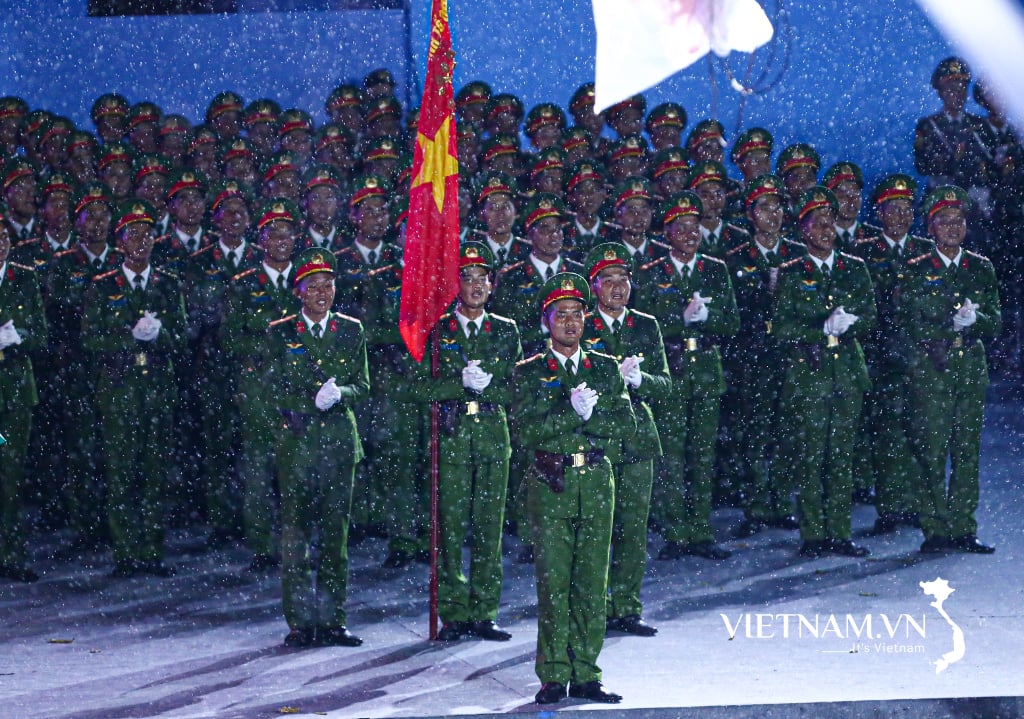
Comment (0)